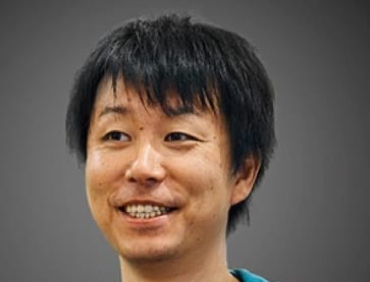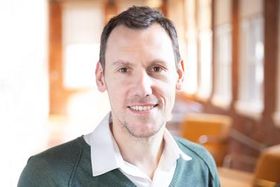
Company: Tongal
Website: www.tongal.com
Headquarters: Santa Monica, CA
Year Founded: 2009
Founders: Rob Salvatore, Mark Burrell, and James DeJulio
Employees: 5
Quick company description (in 140 characters or less): “Tongal allows companies to use crowdsourcing to develop fresh, high quality video content while propelling undiscovered talent.”
 By James DeJulio, President and Co-Founder
By James DeJulio, President and Co-Founder
Product Overview
Tongal is the leading creative social platform that empowers companies to tap into its crowdsourcing model to concept and produce video campaigns.
Tongal’s web platform circumvents the Madison Avenue system by using social media in a process that incentivizes talent around the world to collaborate with each other and the organizations that need them, creating fresh, compelling, high quality content. For a fraction of the cost of traditional means, brands can rise above the noise and propel undiscovered talent.
Through collaborative contests where each project is broken down into pieces, users compete for monetary rewards and points. The sponsor selects winners in each phase, which include submitting ideas, making suggestions or a pitch that expands on the ideas, and then producing the video itself. By breaking creativity into smaller pieces, we allow people from all walks of life to participate, contribute their unique voice and get paid for their creativity.
Founder’s Story
I was in the feature film business at Paramount Pictures and was growing increasingly frustrated with the inefficiency in how creative work was getting done and how hard it was for story to make it to screen. At the same time, I noticed that the tools to produce filmed content were becoming cheaper and cheaper and the work force larger and larger, yet costs kept climbing; it was unsustainable. I also hated, and couldn’t rationalize the oligopoly on creative work—in Hollywood and Madison Avenue. Because of this, great material often became expensive paperweights.
The final straw for me in “The System” came when I got my hands on a manuscript of The Da Vinci Code. I read it overnight, submitted it to the studio, only to have them pass on the project. Imagine how I felt that summer in airports when seemingly everyone was holding a copy—then when I saw Tom Hanks’ Langdon hairdo—that was it!
I left Paramount and formed an entrepreneurial partnership to develop, produce and finance content outside the studio system. We would hand pick a book or magazine article, buy it, and co-develop it with writers and other creative—usually people working on the industry fringe. We had some success in deals with HBO and National Lampoon, but we were ultimately still reliant on the old system; we had great material and had trouble getting it to market. It was frustrating.
Late in 2007, Rob Salvatore, Mark Burrell (Tongal co-founders) and I were having a conversation with Jack Hughes, the CEO of TopCoder, a Boston-based software developer with a global community of over 200,000 programmers who compete to develop the best code for client projects. We were brainstorming ways to apply the TopCoder model to filmed content. It just seemed to make sense, so we let the idea marinate for a couple of years, dove into the space, and Rob, Mark and I developed the Tongal model.
We realized that people now have access to smaller and cheaper, yet technologically sophisticated cameras and other equipment that was once the sole province of professionals—this has blown the doors off of what was creatively possible in the past. Making a compelling, high quality piece of media, whether it be an ad or a film, no longer needs a major production; people are already making and sharing their films on YouTube and Vimeo for free and the demand for video content across social media is seemingly infinite, so we knew we were on to something.
Since the demand from brand marketers was growing for an every day content solution we thought it would be best to start off with shorter pieces, beginning with web video and thirty-second commercials. Now that we’ve proven that this model works for those outputs for all types of brands and businesses, we realize that we’ll soon have the ability to move into (and democratize) longer-form content for the web, TV and feature length films.
Marketing/Promotion Strategy
We primarily use social media to promote Tongal, through our clients and our community. We integrated the platform into Facebook and Twitter so people don’t even have to navigate to tongal.com. For example, people can tweet an Idea out with a unique hashtag and we can capture it. Lots of our clients have dedicated a lot of time, money and energy to building these social media followings; now they can give their community something to do and a way to be productive.
Our community has become as diverse as we hoped it would. Our members range from teenagers to 45+. They are 70 percent male and 30 percent female. They are U.S. based (80 percent; all 50 states) and international (20 percent; 50+ countries). In just one month, we had visits from 125 different countries. A huge factor is our ability to offer diversity in our product, and a global market perspective.
How We Differentiate from the Competition
What differentiates Tongal from other “crowdsourcers” in our space is that it’s not an open call for work; it’s a forum where people with different skill sets can collaborate and brands can truly explore and amplify creative possibilities. The predictive element of our contests and our crowdsourced video distribution capabilities or “Exhibition” also sets us apart. In the Exhibition Phase, anyone with a strong presence online can capitalize on their social graph and audience to earn points that translate into dollars on Tongal. We actually have a patent application published on our unique methodology and process that we employ to produce content.
Business Model
We intended to lead by example, and apply the model to every component of Tongal, having crowdsourced everything from our logo to site development to marketing. That helps with the challenge of turning a profit. We make money through platform subscriptions and monthly fees for business clients.
Current Needs
We have always aspired to be a magnet for talent and we’re interested in hiring anyone that shares our vision and work ethic.
Tongal launched in 2009 and is based in Santa Monica, CA.
Tongal – www.togal.com










